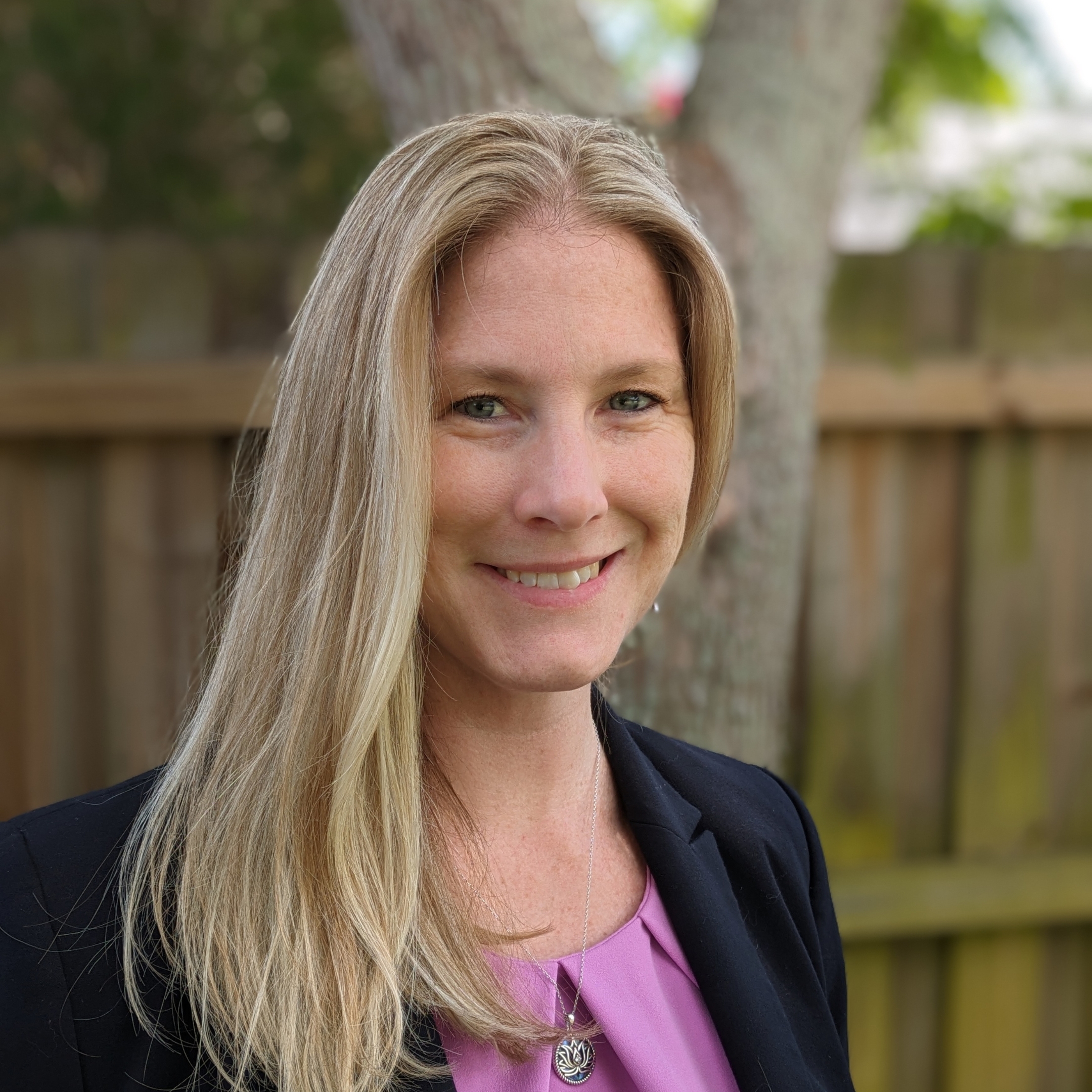


A resident of Tampa, Florida, Kristin Kadaj once believed that becoming an attorney was the only pathway to providing legal help in her community. However, she witnessed the ever-growing legal needs of her friends and family, felt their concerns, and connected with other local residents over their everyday challenges. She soon realized the cost barrier for legal services breeds constant stress and fear for those living under the weight of unaffordable and unresolved legal problems. From immigration to domestic violence and housing issues, Kristin’s paralegal experience taught her that tackling these challenges early on could help safeguard the economic and social fabric of her community.
“People don’t get divorced because they can’t afford an attorney, so they stay married to an abuser.”
Kristin became a Registered Paralegal through the Florida Bar by way of education and credentialing. As a member of the Paralegal Association of Florida, and partnering with the Clearwater Bar Association and Bay Area Legal Services, Kristin now works alongside attorneys at free legal form clinics, where residents can receive free consultations for civil legal issues, get help with filling out legal documents, and obtain trusted support to guide them through the maze of the legal process.
Kristin has realized that one of the biggest barriers to someone receiving legal services is the financial burden - most people lack $350 per hour for a lawyer or the money for an expensive upfront retainer. Other barriers are limited access to a computer and difficulty understanding legal jargon. As a paralegal, she has earned the community’s trust by helping community members navigate challenges and bridge communication gaps in a way that feels approachable rather than intimidating.
“I feel like just being an attorney automatically lowers some people's trust with their attorneys. I think the paralegals can definitely help with that because we are normal people.”
While the positive impact of the legal form clinics on community members is undeniable, the reach is still far too limited. The legal form clinics have become a vital touchpoint for people seeking justice, yet the clinics are usually only available once a year. For community members facing urgent disputes, family crises, and benefit denials, waiting months or a year is the difference between stability and catastrophe.
The outcomes Kristin has seen from these free legal form clinics further solidify why justice work is so important. Authorizing justice worker programs would empower frontline helpers, like Kristin, to deliver steady, neighborhood-based support and reach people far more often than a yearly or quarterly clinic. This is one of the reasons Kristin is adamant about empowering trained paralegals and other qualified individuals to provide direct assistance. She believes this will help alleviate the bottleneck of infrequent clinics that rely solely on attorneys to give advice. Community justice workers can meet people where they are and address urgent needs immediately. It’s clear to her that community justice workers aren’t just helpful, but transformational. Because something as simple as not knowing where or how to get a notary shouldn’t be the reason a family loses hope.
“The training is there. The experienced paralegals are there. They want to help. They’re available to help.”
Kristin recalls that, at one legal form clinic, there were only four attorneys available. Only four community members were able to sign up for help because it consumed the entire day. This means that, for every one person who receives help, many more are turned away or left waiting. Instances such as this highlight the disparity in the distribution of help to communities.
Kristin even has her own freelance business as a family law paralegal—though Florida’s rules severely limit what she can do without an attorney’s supervision. While she cannot provide direct services to the public without running afoul of unauthorized practice of law statutes, she still provides people with resources or directs them to local non-profits or low-bono services. Still, she feels there is so much more work to be done.
“Right now in Florida, I can’t even tell somebody what forms they need to fill out because that’s practicing law without a license.”
Kristin serves on the Unlicensed Practice of Law Committee through the Florida Bar, so she’s well aware of her limitations as a paralegal and the inability to provide legal advice. She grew up in and is connected to the very communities she’s looking to change, so she believes expanding access to justice and empowering frontline helpers as community justice workers is a resource to help prevent everyday problems before they spiral into crises. Kristin is mapping out the places where people already go for help, including HEP (Homeless Empowerment Program), CASA (domestic violence services), St. Michael’s forms clinic, Bay Area Legal Services, and Gulf Coast Legal Services. She imagines community justice workers woven into those places to guide residents and open doors to practical and timely solutions.
Today, Kristin has a clear vision for community justice workers, imagining more frequent clinics and broader outreach through statewide paralegal networks. Frontline Justice is building the framework and creating training and credentialing standards that local partners can shape to Florida’s needs—beginning with SNAP benefits and stretching outward to meet other urgent challenges. Together, these efforts bring justice closer, meeting people where they are and offering support in the moments when it matters most.
Being a dependable resource takes time. It takes trust. It takes someone who knows and understands the community to help strengthen the community. And after 15 years of being in the paralegal field, Kristin knows that building a community means intentionally showing up for people.
“I feel like I build trust by being there for people and being somebody dependable who is going to show up when I say I’m going to show up and do what I say I’m going to do.”